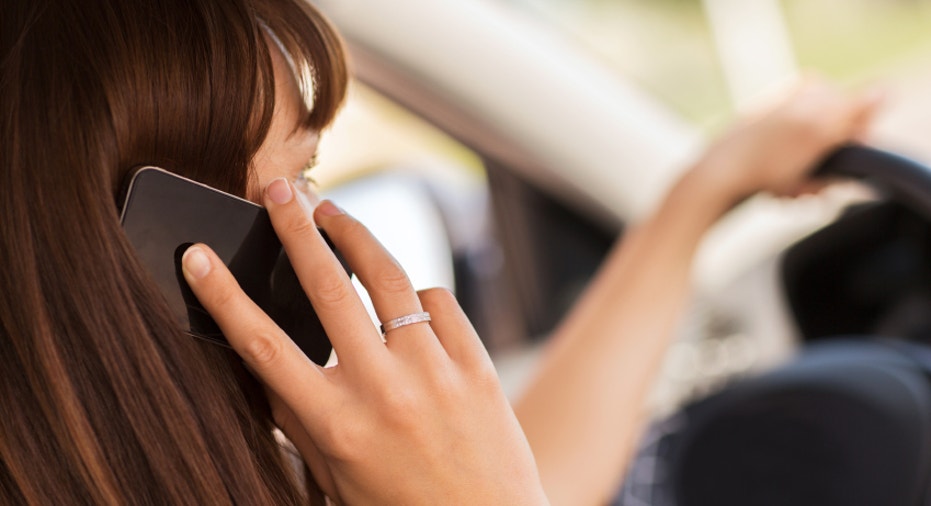Avoid Road Rage, Your Budget and Health Will Thank You

Driving is a bizarre social experiment: Our immediate safety depends on hundreds of people around us, yet we can't effectively communicate with any of them save by gesticulating and grunting like apes through glass.
No wonder we're so frustrated.
But while a private curse or angry fist pump might feel satisfying, it's not doing our health or happiness any good.
"People go by the venting myth, that it's good to express anger rather than hold it in. But it's not true," says Leon James, a professor of psychology at the University of Hawaii and co-author of "Road Rage and Aggressive Driving." "It causes you to be more angry," and arouses anticipatory anxiety: "You anticipate that other motorists are going to somehow upset you."
When the AAA rounded up traffic injuries and deaths caused by angry driving in the mid '90s, it counted more than 12,000 injuries and 218 deaths in just six years. But those are only worst-case scenarios.
Far more pervasive, and impossible to tally, are the negative health and social effects of all that cursing and ill-will. Not to mention the anxiety-induced close calls and fender benders. (Virtually nothing you can do helps your car insurance rates more than simply being a good driver.)
"Besides that, there's also a moral risk," says James. "It kind of degrades our morality to think that way, to denigrate the other person. That could be our cousin, or brother."
Nice doesn't cost you a thing
Mind you, James is not an unrealistic idealist. He knows angry driving is common around the globe. His research has even shown that it's common for people to harbor violent fantasies about other drivers. Heck, he's done it himself.
But he offers a simple alternative that's rarely discussed and could improve our health and outlook off the road, too: Just be nice.
If a driver is trying to sneak ahead of the line to merge, just let him in. If someone's pulling painfully slowly from a parking space, just be patient. Think, "Hey, at least he's being careful!" If a really obnoxious driver gets angry at you, just ignore it.
To those of us accustomed to barking, this may sound untenable. But it's a philosophy promoted by driving experts and anger-management instructors, too, the prevailing mantra being, "It's all about how YOU respond."
"And what do you have to lose, really, to let someone in?" says John Bowman, a spokesman for the National Motorists Association. "You might as well be the bigger person."
Far better to remain calm, he says. Use the incident as a lesson of what not to do, as a reminder to be a courteous driver yourself. "If you get stressed out, you may make an erratic driving maneuver and be unsafe in the process," Bowman says.
8 reasons to chill the heck out
Still want to stick with the alternative? Then consider what happens when you do get mad:
- Venting generates anxiety.
- Anxiety causes blood pressure to rise and immunity to weaken.
- Anger affects judgment. "It makes it more likely that you're going to snap, or do something impulsive," says James.
- Tailgating, brake stomping, weaving or unsafe passing puts everyone in danger.
- Anger begets more anger, following us to home and work. Other people dislike the venting.
- Rage sets off rage in other drivers, beginning an arms race between two 4,000-pound missiles.
- Berating other drivers teaches the kids in the backseat unkind attitudes about other people. "When a teen is ready to learn to drive, that's not when you start modeling good behavior. You start modeling behavior from the moment they're in the car," says Bruce Hamilton, a spokesman for the AAA Foundation for Traffic Safety.
- Intolerance becomes habit. "So if you are well-practiced as a driver for thinking intolerantly, you are going to transfer this to other areas of life," James says.
On the flip side, practice empathy toward other drivers and you'll likely be more empathetic at home, work and school. The key on the road, say experts, is to remember that you've probably made the same annoying mistake yourself, then cut the other guy some slack.
"People often say things like, 'Look at that idiot. He forgot to turn off his signal.' Why do we have to think he's an idiot because he forgot to turn off his signal? We do that, too," says James. "We just have to stop the habit of aggressive thinking."
Other tips if things get rough:
- Sing. It requires deep breaths, which prevents the short quick breaths of anxiety. It's also a happy distraction.
- Pull over. Make a call or adjust the radio to refocus your thinking.
- Leave earlier. It's very difficult to quell anxiety when you fear being late.
- Don't clench. Periodically check your grip and relax.
- Record yourself. Hearing words and tone can provide a helpful shock.
- Remember those big ears in the back seat.
- Know that no matter what you'd like to do, it's not going to succeed in teaching the other guy a lesson.
The original article can be found at CarInsurance.com:The other driver is not an idiot



















